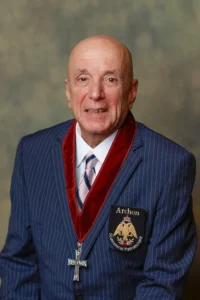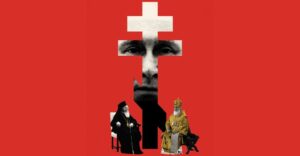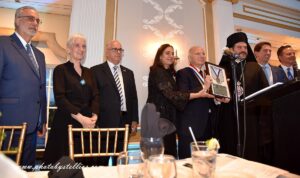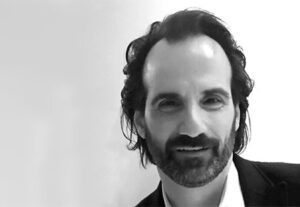The Calgary Herald newspaper has reported on the religious freedom crisis currently facing the Ecumenical Patriarchate. The Order of St. Andrew has reached out to the G20 Group of Nations to encourage Turkey to address the religious freedom deficit that constrains the Ecumenical Patriarchate and other religious minorities in Turkey. The G20 is slated to meet in Toronto, Canada on June 26-27, 2010.
The G20 was established in 1999 and is comprised of the world’s major economies, nineteen (19) countries, including Turkey, plus the European Union. Its purpose is to bring together systemically important industrialized and developing economies to discuss key issues in the global economy.
The Calgary Herald, founded in 1883, is a daily newspaper published in the Canadian city of Calgary, Alberta.
G20 must do more to protect Christians in Turkey
By Evagelos Sotiropoulos, For The Calgary Herald
Read this article on the website of The Calgary Herald
Visualize the Vatican without Catholics or Jerusalem with no Jews.
Better yet, imagine Mecca without Muslims. Silly, is it not? The international community would never tolerate such things.
But alas, the soul of Christianity is vanishing in Turkey today and hardly anyone is heeding the call for help.
The Ecumenical Patriarchate, the holiest centre of Orthodoxy, is being systematically suffocated by Turkish authorities. Despite calls for human rights reforms in Turkey, the government in Ankara continues to discriminate against religious minorities. As a result, the survival of the 1,700-year-old Patriarchate is uncertain.
In the fourth century, Constantine the Great allowed Christianity to flourish and founded a new capital in present-day Istanbul. The “New Rome,” strategically situated along the shores of the Bosporus, was an indispensable link for commercial activity between Europe and Asia.
The associated economic, political and cultural advantages allowed the Byzantine Empire to become the most powerful force for many centuries.
In 1453, however, Sultan Mehmed’s army took control of the capital. Although the Empire died, the One, Holy, Catholic and Apostolic Church lived on.
Following licentious looting after the siege of Constantinople that included the trashing of the Hagia Sophia basilica, the Sultan sought someone for the Ecumenical throne to be responsible for the Orthodox population. After the Holy Synod chose a monk named Gennadios as leader, Mehmed pronounced, “Be Patriarch and may Heaven protect you! On every occasion count upon my friendship and enjoy all the privileges possessed by your predecessors.” These words were often cited to safeguard the activities of the Patriarchate.
For 500 years of Ottoman rule thereafter, the Mother Church coexisted peacefully with Turkish authorities. In addition to carrying out its spiritual authority, it regulated the secular affairs of Christians.
When nations began gaining their independence from the Ottomans, the Ecumenical Patriarchate ceased its civic role, becoming again a purely religious institution, which it remains to this day.
It is therefore deplorable that the Ecumenical Patriarchate, despite guarantees under the Treaty of Lausanne, faces numerous problems that threaten its existence. These include the continued illegal closure of the Theological School of Halki and restrictions on Church elections.
The inability to train new hierarchs coupled with the requirement that Patriarchs be Turkish citizens is a cruel combination that may soon create a spiritual vacuum in Christianity.
Furthermore, the Patriarchate — in spite of existing before even the idea of Turkey — has no legal status or identity in the country!
Ankara refuses even to recognize the title “Ecumenical” — a sixth-century ecclesiastical designation recognized throughout the world.
The majority of faithful under the jurisdiction of His All Holiness Ecumenical Patriarch Bartholomew, for example, are outside Turkey — including roughly 500,000 in Canada.
The Canadian government, regrettably, has remained largely silent on the plight of the Patriarchate. The United States, European Union and United Nations have each called on Turkey to take restorative measures that strengthen the status of its non-Muslim communities.
When President Barack Obama addressed the Turkish National Assembly last year, he remarked that, “Freedom of religion and expression lead to a strong and vibrant civil society that only strengthens the state, which is why steps like reopening Halki Seminary will send such an important signal inside Turkey and beyond.” Moreover, the UN Committee on the Elimination of Racial Discrimination has specifically called on Ankara to redress the situation of its Orthodox population. Without a concerted and sustained international effort, it is unlikely that Turkey will ameliorate the position of the Patriarchate. As 2010 is an international year for Canada, it is in this context that Prime Minister Stephen Harper can make a meaningful difference. As host of the G8 and G20. Summits (the latter includes Turkey) Canada has the chance to champion the existing international consensus in support of the spiritual centre of Orthodoxy.
The Prime Minister has maintained that the public does not want its government to “sell out important Canadian values — our belief in democracy, freedom, human rights . . . to the almighty dollar.” If this is the policy toward some countries (e. g., China) should it not be the policy for all countries? Turkey — regardless of the size of its economy and population and strategic geographic location — should not be given a pass on its human rights responsibilities.
Canada can help save the living institution that is Orthodoxy and the historical mission of the Ecumenical Patriarchate. The international community must work to prevent a great moral void in Christianity, akin to the Vatican vanishing — 300 million faithful are counting on them.
Evagelos Sotiropoulos is a free lance writer who lives in Toronto.
Copyright (c) The Calgary Herald







